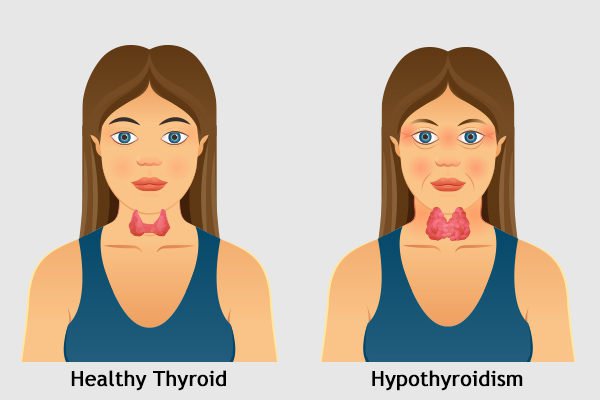When it comes to weight loss, many factors come into play, including diet, exercise, metabolism, and hormonal balance. One crucial hormone that plays a significant role in metabolism and weight regulation is thyroid hormone. The thyroid gland, located in the neck, produces hormones that control metabolism and energy levels. However, when the thyroid gland is not functioning optimally, it can sabotage your weight Health + Welness efforts. In this article, we’ll explore the relationship between thyroid function and weight loss and discuss what you can do if your thyroid is affecting your weight-loss goals.
Understanding Thyroid Function:
The thyroid gland produces two main hormones: thyroxine (T4) and triiodothyronine (T3). These hormones regulate metabolism, energy production, body temperature, and other essential functions. When the thyroid gland is functioning correctly, it produces the right amount of hormones to keep metabolism running smoothly. However, various factors can disrupt thyroid function, leading to imbalances that affect weight regulation.
How Thyroid Imbalance Affects Weight Loss:
- Hypothyroidism: Hypothyroidism occurs when the thyroid gland does not produce enough thyroid hormone. This can slow down metabolism, leading to weight gain or difficulty losing weight, even with diet and exercise. Other symptoms of hypothyroidism may include fatigue, cold intolerance, dry skin, and hair loss.
- Hyperthyroidism: Hyperthyroidism occurs when the thyroid gland produces too much thyroid hormone. This can speed up metabolism, causing weight loss or difficulty maintaining weight, despite increased appetite. Other symptoms of hyperthyroidism may include rapid heartbeat, sweating, anxiety, and tremors.
Signs Your Thyroid May Be Affecting Your Weight-Loss Efforts:
- Unexplained Weight Changes: If you’re experiencing unexplained weight gain or weight loss despite following a healthy diet and exercise routine, your thyroid function may be a contributing factor.
- Persistent Fatigue: Fatigue is a common symptom of thyroid imbalance, particularly hypothyroidism. If you’re feeling constantly tired or lacking energy, it may be a sign that your thyroid function needs attention.
- Changes in Appetite: Thyroid imbalances can affect appetite and food cravings. If you notice significant changes in your appetite, such as increased hunger or loss of appetite, it’s worth considering thyroid testing.
- Irregular Menstrual Cycles: Thyroid imbalances can disrupt menstrual cycles, leading to irregular periods or changes in menstrual flow. If you’re experiencing menstrual irregularities along with other symptoms, it may be related to thyroid dysfunction.
What You Can Do:
If you suspect that your thyroid may be affecting your weight-loss goals, it’s essential to consult with a healthcare provider for proper evaluation and diagnosis. They may recommend thyroid function tests, such as TSH (thyroid-stimulating hormone), T3, and T4 levels, to assess thyroid function accurately.
Depending on the diagnosis, treatment for thyroid imbalances may include:
- Thyroid Hormone Replacement Therapy: For hypothyroidism, thyroid hormone replacement medication may be prescribed to restore hormone levels to normal and alleviate symptoms.
- Anti-Thyroid Medications: For hyperthyroidism, medications that suppress thyroid function may be prescribed to reduce the production of thyroid hormone.
- Lifestyle Modifications: In addition to medication, lifestyle modifications such as adopting a healthy diet, getting regular exercise, managing stress, and prioritizing sleep can support thyroid health and overall well-being.
Conclusion:
Thyroid function plays a crucial role in metabolism and weight regulation. If your thyroid gland is not functioning optimally, it can sabotage your weight-loss efforts and lead to other health issues. If you suspect that your thyroid may be affecting your weight, energy levels, or overall well-being, it’s essential to consult with a healthcare provider for proper evaluation and treatment. By addressing thyroid imbalances and implementing lifestyle modifications, you can support thyroid health and work towards achieving your weight-loss goals effectively. Remember, a healthy thyroid is key to a healthy metabolism and overall wellness.
